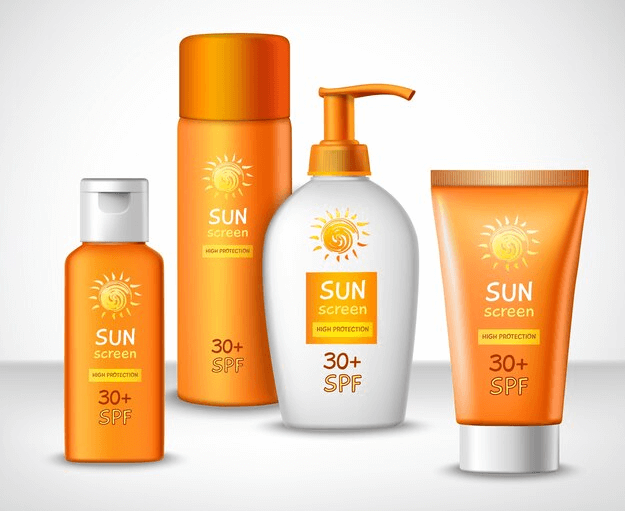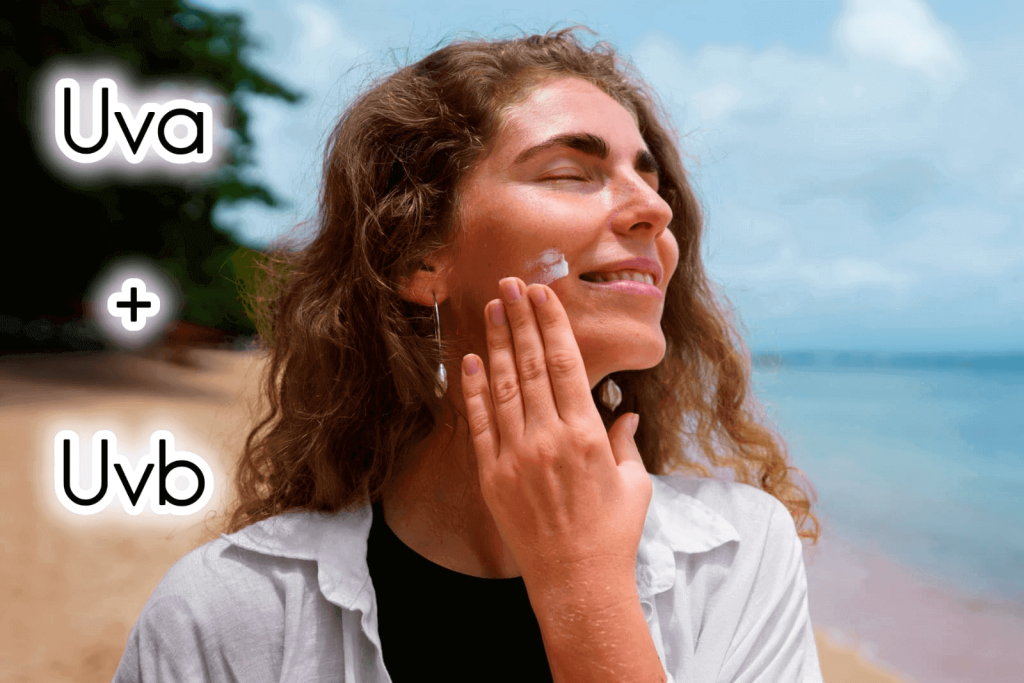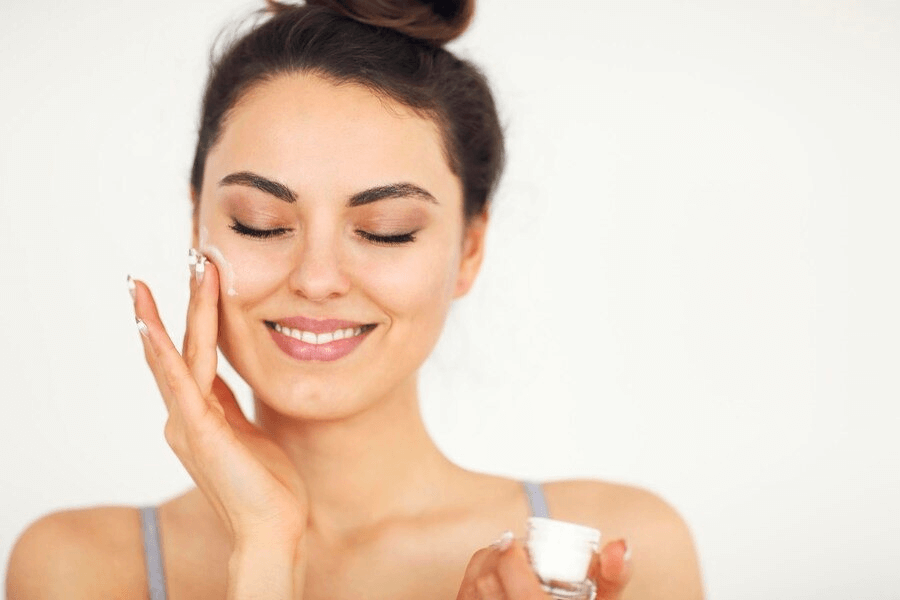
Your Guide to Safe Sunscreen Use: Debunking Myths
Are Physical Sunscreens Superior to Chemical Sunscreens?
Physical sunscreens are often considered less likely to cause skin irritation compared to chemical sunscreens. However, both types have undergone safety and efficacy testing. Many modern sun protection products combine these ingredients. All active compounds in sunscreen are chemically derived. Does this mean it should be avoided?
Debunking Sunscreen Myths: Separating Fact from Fiction
Assertions range from claims of sunscreen ineffectiveness to warnings of its dangers, with some even suggesting a link between sunscreen and skin cancer due to alleged toxic ingredients. But are these assertions accurate? Let’s delve into the scientific truth about sunscreen and its impact on skin health
Should Certain Chemicals in Sunscreen Be Avoided?

Experts recommend steering clear of specific sunscreen components that may penetrate cell membranes and potentially disrupt natural hormone production. Two types of sunscreens exist: Physical blockers reflect UV rays and include zinc oxide or titanium dioxide. Chemical blockers absorb ultraviolet rays and commonly include aminobenzoic acid, avobenzone, octisalate, octocrylene, and oxybenzone in the US.
Sunscreen and Vitamin D: A Delicate Balance
Sunscreen blocks UVB rays crucial for vitamin D synthesis in the skin. However, typical sunscreen usage doesn’t usually lead to vitamin D deficiency due to inadequate application amounts. Concerned about vitamin D levels? A vitamin D supplement can be recommended by your doctor. While some experts suggest brief sun exposure before sunscreen application, its necessity remains debatable, as vitamin D can also be obtained from diet and supplements. Fear of vitamin D deficiency shouldn’t deter sunscreen use.
General Sunscreen Use Advice

Relying solely on sunscreen for sun protection poses risks. Studies indicate sunscreen users may extend sun exposure, potentially increasing skin cancer risk.
Debunking Myths: Oxybenzone Concerns
Oxybenzone has been criticized for potential hormone disruption, but conclusive human harm evidence is lacking. Concerns often stem from animal studies where subjects ingested oxybenzone, a scenario vastly different from topical use. Allergic reactions to oxybenzone are reported but uncommon. Despite concerns, avoiding oxybenzone in sunscreen may not fully mitigate exposure, given its presence in various daily products.
Does Sunscreen Cause Skin Cancer?
No evidence supports sunscreen causing skin cancer. Studies suggesting higher cancer risks among sunscreen users were confounded by increased sun exposure levels.
Does Sunscreen Protect Against Skin Cancer?

Yes, sunscreen effectively protects against squamous cell carcinoma, basal cell carcinoma, and melanoma. Its efficacy correlates directly with UV radiation reduction.
Sunscreen Poisoning: Fact or Fiction?
There’s no credible evidence supporting sunscreen toxicity.
Nanoparticles in Sunscreen: Harmful or Safe?
Physical sunscreens with titanium dioxide and zinc oxide use nanoparticles for improved application and skin absorption. These particles don’t penetrate beyond the skin surface, minimizing health risks.
Sunscreen for Different Skin Tones: Necessary?
Dark-skinned individuals, at lower skin cancer risk, may not require sunscreen solely for cancer prevention. However, sun-protective habits benefit all skin types.
Tips for Effective Sun Protection

- Don’t rely solely on sunscreen.
- Wear sun-protective clothing.
- Reapply sunscreen every two hours.
SPF Insights: What You Should Know
SPF measures UVB protection effectiveness. Higher SPFs offer greater protection but require reapplication as frequently as lower SPFs.
Understanding UVA and UVB Protection

Choose broad-spectrum sunscreens to shield against both UVA and UVB rays. UVA rays penetrate deeper into the skin and contribute to long-term damage.
Physical vs. Chemical Sunscreens: What’s the Difference?
Inorganic sunscreens (physical) reflect UV rays using zinc oxide or titanium dioxide, while organic (chemical) variants absorb UV rays. Both are effective but may vary in application and formulation.
How Often Should Sunscreen Be Applied?

Reapply sunscreen every two hours, as its effectiveness diminishes over time and with activity.
Face vs. Body Sunscreen: Is There a Difference?
While formulations may differ, both face and body sunscreens provide similar protection.
Sunscreen for Kids and Babies
Children and those with sensitive skin benefit from physical sunscreens to minimize adverse reactions.
Concerns About Sunscreen Ingredients

Active sunscreen ingredients undergo rigorous FDA safety evaluations. Those with sensitive skin should opt for hypoallergenic and fragrance-free options.
Impact on Coral Reefs
Certain sunscreen ingredients, like oxybenzone and octinoxate, may harm coral reefs. Choose reef-safe options to mitigate environmental impact.
Choosing the Right Sunscreen for Your Skin
Select broad-spectrum sunscreen with SPF 30 or higher, tailored to your skin type and preferences.
Sunscreen Expiration: Does It Matter?
Sunscreens degrade over time, so adhere to expiration dates or replace every three years if no date is listed.
Does Sunscreen Limit Vitamin D Intake?
While sunscreen reduces vitamin D synthesis, its impact on blood levels is minimal. Alternative sources and supplements can compensate for reduced sunlight exposure.
Additional Sun Protection Tips
- Wear sun-protective clothing.
- Stay in the shade during peak sun hours.
- Consider hats and sunglasses for added protection.




